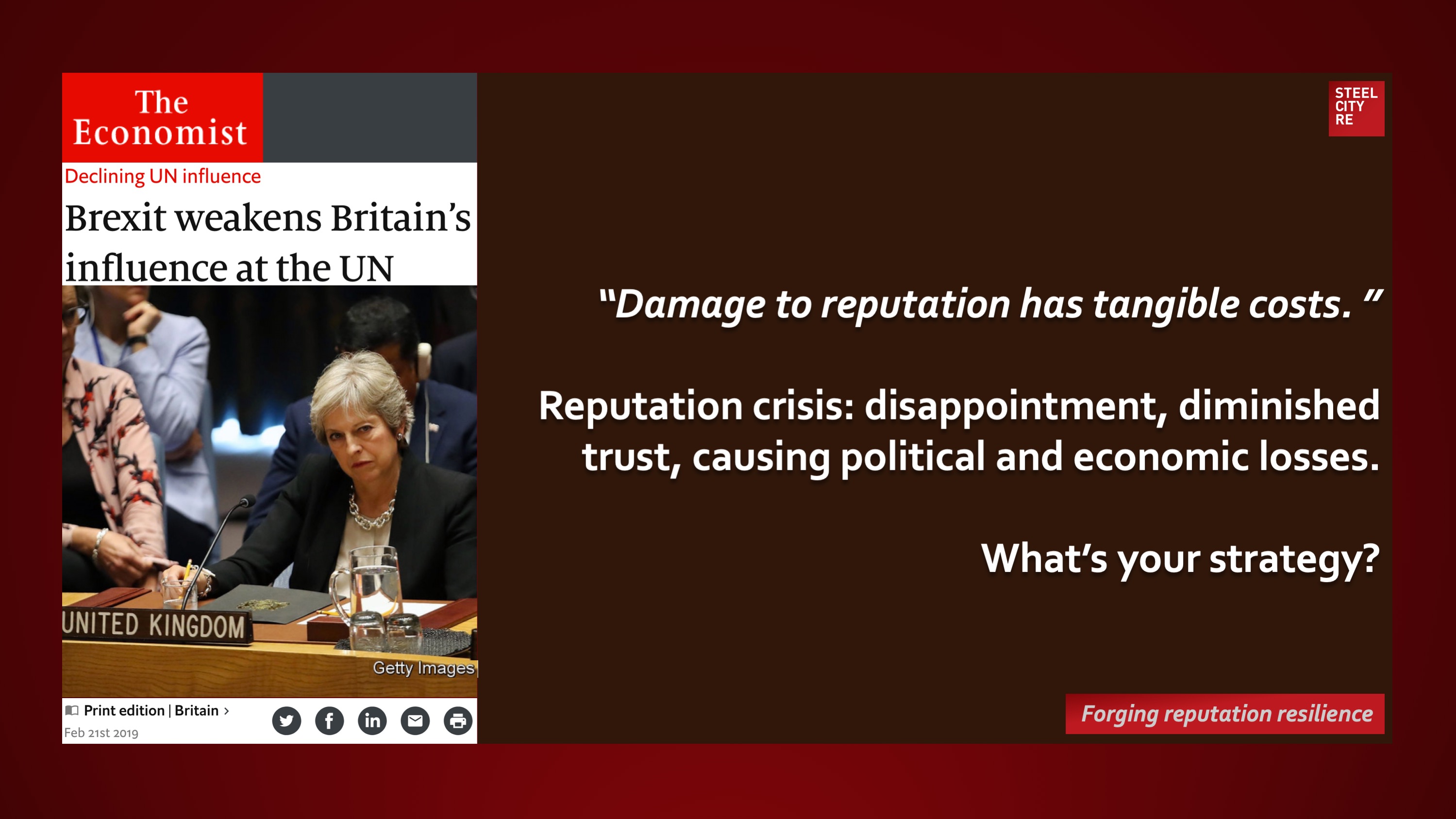“Britain was aghast when it failed to get a judge reappointed to the International Court of Justice in 2017. The number of British nationals on human-rights bodies is at an all-time low, says the Universal Rights Group, a Geneva-based think-tank. British candidates for special committees have been rejected 35 times since 2016. There is “increasing nervousness” about Britain’s chances of being re-elected to the Human Rights Council in 2021, says an insider. It could also become costlier for Britain to secure funding for mandates that it supports.”
The Economist
February 25, 2019
“Damage to reputation has tangible costs.”
Reputation crises are characterized by disappointment, diminished trust, causing political and economic losses.
Reputations are valuable strategic intangible assets. Threats to these assets⏤ enterprise reputation risks, often mislabeled “brand risks” ⏤ need to be managed, and management needs to be overseen through reputation risk governance lest reputational damage or reputational harm result in long-tailed go-forward losses in economic value and/or political power. Because these intangible risks arise from the interplay of stakeholder expectation, experiences, and media amplification, parametric insurances for intangible asset risks, for reputational value, for reputational harm, and for reputation assurance help mitigate risk by telling a simple, convincing and completely credible story of quality reputation governance to stakeholders. This story telling effect is the expressive power of insurance complementing insurance’s better known instrumental power of indemnification.
Risk management, risk financing in insurance captives, and risk transfer through reputation insurances comprise the constituent elements of a comprehensive solution.
What’s your strategy?

